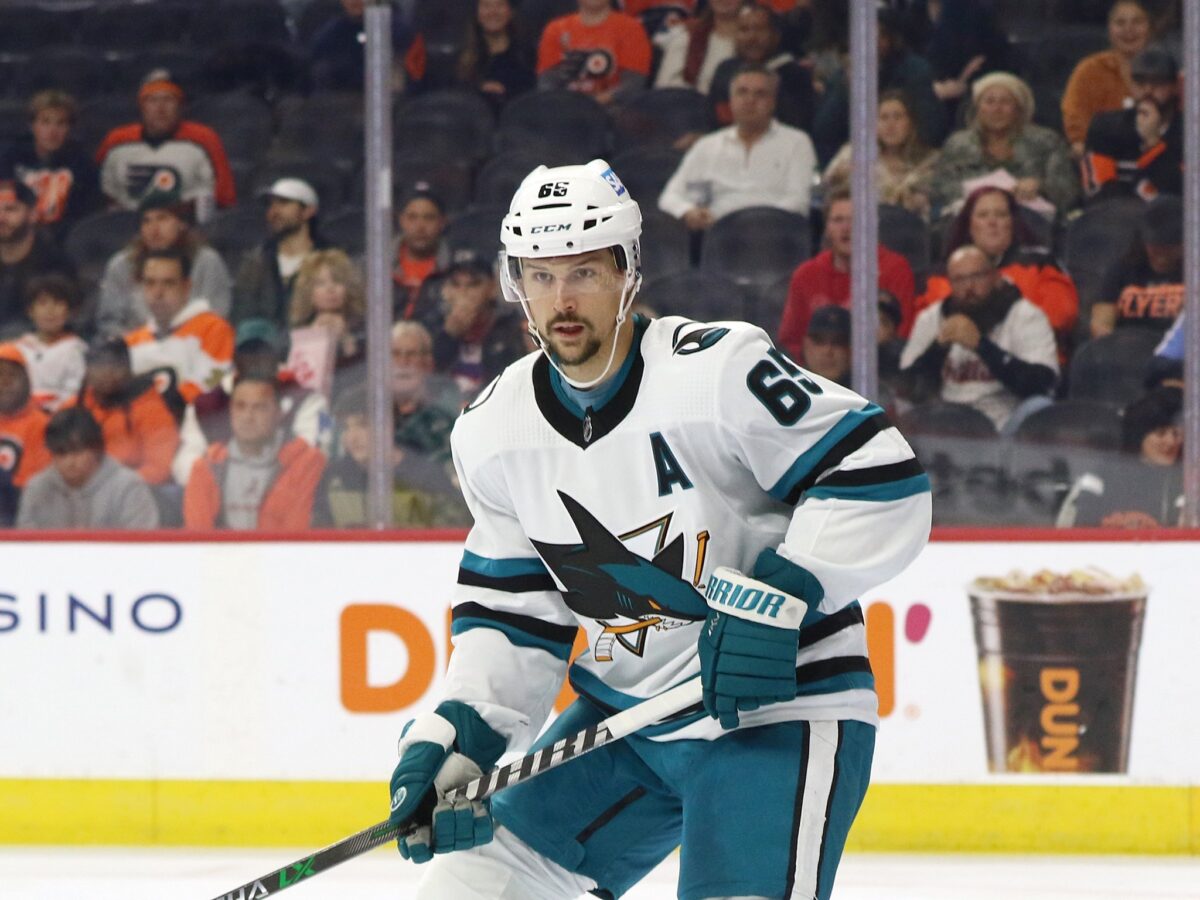The San Jose Sharks concluded a six-game homestand on Saturday night (Nov. 5), earning five points in that stretch, but they could have easily picked up seven or eight. The lost opportunities and potential wins that turned into shootout losses were defined by late third-period struggles, an issue that has plagued the team all season. These issues boil down to a few key areas where the Sharks can improve, which would allow them to snag close late-game wins rather than letting them slip away.
Hustle & Focus from Erik Karlsson & Others
The Sharks closed the homestand with three consecutive shootout losses, but each of the last two — against the Florida Panthers and Anaheim Ducks, respectively — probably should have been regulation wins. In both games, San Jose allowed a game-tying goal in the final two minutes of regulation with the opposing goalie pulled, and, to some extent, a lack of effort and attention to detail can explain the blown leads.

Against the Panthers, the goal in question showed that the Sharks need to do a better job of winning puck battles and staying focused on defense. It started when the Panthers, who had possession in their offensive zone, won a race for a loose puck following a bad pass and reset their offense. As Matthew Tkachuk worked behind the net, Erik Karlsson got caught puck-watching, allowing Carter Verhaeghe to sneak close to the net, collect a pass, and fire a wrist shot that beat James Reimer.
It was a well-placed shot, but it would not have happened if the Sharks had won the puck battle or if Karlsson had shown greater defensive awareness.
The matchup with the Ducks also featured a late tying goal, and the Sharks did lose several puck scrambles in the lead-up to it, but the goal before that — which cut the lead from two goals to one with about four minutes remaining in the third period — is really worth examining. With San Jose nearing the end of a power play, they sent a difficult pass to the blue line that slipped past forward Matt Nieto and went right to Ducks forward Mason McTavish as he left the box. From there, McTavish had an uncontested breakaway and made a nice move to score.
This goal points to poor situational awareness by the Sharks. When a power play ends, it is crucial to keep the puck in the zone, especially when protecting a late lead. The ill-advised pass that led to McTavish’s goal is one San Jose probably wants back — and one that may not have been made if the players on the ice had paid more attention to how much time was left on the power play.
The level of effort has also come into play in the three overtime periods of these games. In each of them, the Sharks allowed more scoring chances than they had and had to play defense for long stretches as they got out-hustled at three-on-three. While they didn’t allow any overtime goals, they didn’t give themselves many scoring opportunities, hurting their chances to win. As a result, all three went to a shootout, and unfortunately, the Sharks didn’t quite have the skill necessary to match their opponents in any of them.
Sharks Improving, But Still Struggling at Finding Net
It’s not just defensively that the Sharks have struggled in the third period. They have scored just seven third-period goals all season, tied for the fewest in the NHL. These late-game difficulties encapsulate the team’s larger offensive challenges, as they are 24th in the league in goals for despite being in the middle of the pack in both first- and second-period goals.
Related: 4 Takeaways From Sharks’ Frustrating Homestand
From this data, one might conclude that the Sharks are getting gassed by the end of games, and both the numbers and the eye test back this up. Their goal differentials are plus-1 in the first period, minus-5 in the second, and minus-8 in the third. Maybe it’s a conditioning issue, maybe it’s a matter of pure effort, but the bottom line is that the Sharks have been outworked by their opponents in the third and are regularly failing to put up as many shots as they should.
They started to turn this around during their homestand, as they managed six third-period goals across the six games, including three against Florida. So while at least one positive can be taken away from the homestand, this stretch of games is ultimately defined by missed opportunities, and a lot needs to be worked on for the Sharks to start pulling out these wins.